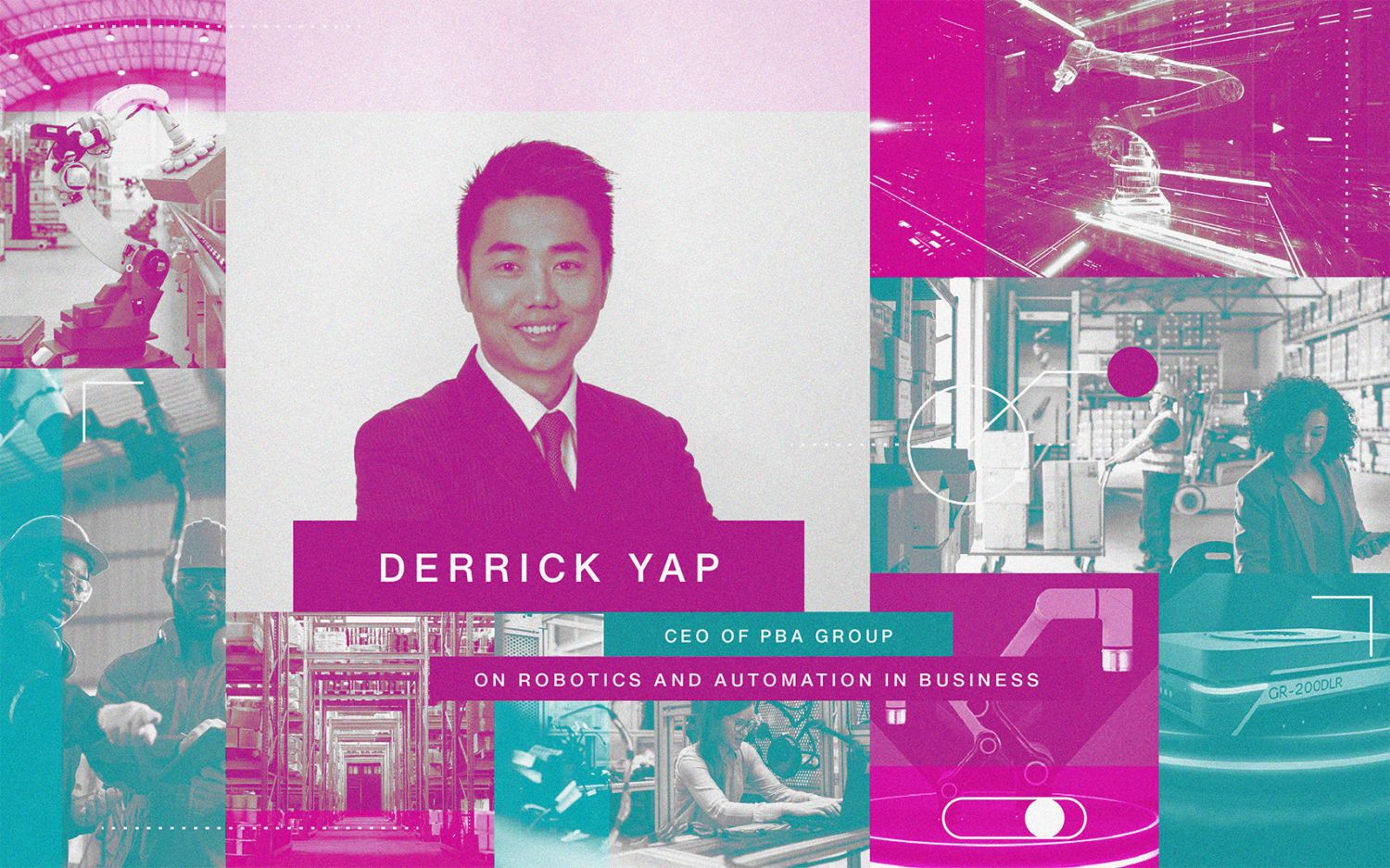Derrick Yap, CEO of PBA Group, offers forecasts and lessons from the robotics and automation industry
Startup founders all aspire to be unicorns, but I like to call my company, PBA Group, a phoenix.
My father founded Precision Bearings and Accessories in 1987 as a ball bearing distributor. While we're a mature company, we've reinvented ourselves. We've been reborn, and today PBA means "Platform for Bots and Automation", as we've radically pivoted to become a successful robotics and automation company that helps businesses to harness Industry 4.0 technologies. These are technologies, says McKinsey, that are seeing in the digitisation of the manufacturing sector—driven by connectivity, advanced analytics, automation, and advanced-manufacturing technologies.
When I took the helm at PBA Group, my priority was to harness these new technologies as part of our strategies to future-proof the company. We could easily have continued what we were doing—after all it was still making good money – but I felt the hardware trading business lacked growth potential and was vulnerable to market changes. So we transformed ourselves from a distributor to a product owner, and from a component maker to a platform. We’ve now built R&D centres in Korea, Taiwan and China, and have over 500 employees in 10 countries—proof that mature companies can and should evolve to stay relevant.
Here are some key learnings and forecasts about the future of automation and robotics.
Developing and developed countries require different robotics solutions
Singapore is a very small market, but conducts a lot of testbedding and experimental research because our government is extremely supportive of the tech industry. However, a product that takes off here may not be as successful elsewhere. Take the autonomous cleaning robots you see in Singapore’s malls and airport as an example. It makes sense to rent or buy such robots here, given Singapore’s high labour costs and government subsidies for adopting technology.
However. the value proposition of these robots would be very different in a country like Indonesia, where wages are considerably lower. For these markets, we focus on automated solutions that do things that humans can’t do, or that humans can do but not for long. An example is automated inspection, where you need to inspect hundreds or thousands of objects coming off the production line. Or we’ll introduce automation in scenarios where objects need to be positioned with micron and nano accuracy, which humans simply aren’t capable of.
